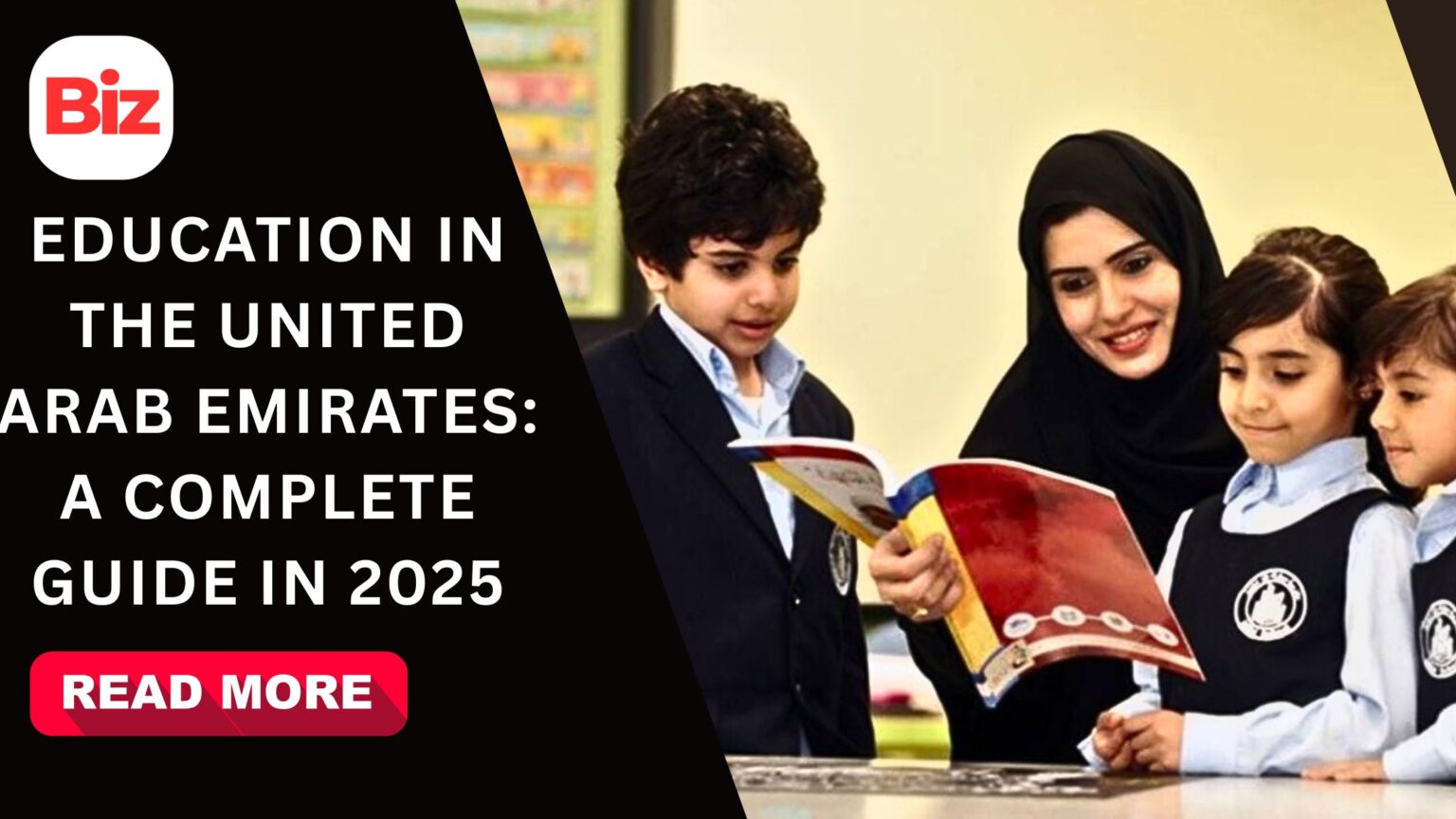Education in the UAE is one of the main foundations for the country’s future. With fast growth and modernization, the UAE government has made education a top priority. Every child has access to good-quality schools that focus on academics as well as creativity, innovation, and problem-solving skills to prepare them for a competitive world.
The Ministry of Education (MoE) manages the curriculum, teaching standards, and student progress. The UAE education system is divided into clear stages, helping children move step by step from early learning to higher education.
UAE Schools and Levels of Education
The UAE education system consists of four stages:
- Kindergarten stage (KG1 and KG2 – 4–5 years)
A stage that is not compulsory, where children learn from play, socialization, and imagination.
- Primary Stage (Grades 1–5 – Ages 6–10)
Children build strong reading, writing, mathematics, and science foundations.
- Preparatory Stage (Grades 6–8 – Ages 11–14)
Students build more advanced understanding and prepare for university.
- Secondary Stage (Grades 9–12 – Ages 15–18)
Students specialize in streams and prepare to attend universities, work, or vocational education.
School cycles
In 2018, the Ministry of Education UAE amended the number of school grades in each stage cycle which will be effective from the academic year 2018-2019. Each school stage will have four grades instead of six as it was before in government schools.
- Basic level: primary or elementary level/Cycle1
In this level, children complete Grades 1 to 4. This level provides a rich learning environment to inspire this age group as they begin their educational journey.
- Intermediate level/Cycle 2
In this level, students study from Grades 6 to 8. The goal is to support their growth, build their skills, and prepare them to become confident and responsible members of society.
- Secondary level/Cycle 3
In this level, students complete Grades 9 to 12. In this level, students are prepared for the starting point in their career and place in the society.
Once completing this level, the student will be granted a high school certificate, which indicates passing 12 years of compulsory education. Students who attended the technical secondary school will be awarded the technical secondary diploma upon completing this level.
Educational Streams in Public Schools
Prior to 2015, students selected a scientific or literary stream. Today, education in UAE schools provides four streams:
- General Stream – General learning pathway for the majority of students.
- Professional Stream (Vocational) – Practice-oriented education with emphasis on skills and applied knowledge.
- Advanced Stream – Greater emphasis on science and mathematics.
- Elite Stream (Advanced Science Program) – For high-achieving students, with more intense STEM study and problem-solving courses.
Main Features of UAE Education
- Focus on STEM – The UAE emphasizes science, technology, engineering, and math to prepare students for careers in innovation.
- Bilingualism – Most schools teach in both English and Arabic, helping students succeed locally and globally.
- School technology—AI tools, online learning platforms, and smart classrooms are widely used in UAE schools, improving education to contemporary and efficient standards.
- Critical Thinking – Instead of rote memorization, students are encouraged to think critically, analyze data, and solve real-world problems.
Challenges in Education in the UAE
The education system in the UAE is always changing, but there are also some challenges along the way:
- Balance of tradition and contemporary education – Schools need to retain Arabic language and Islamic values alongside keeping pace with international standards.
- Low education affordability – Private schools in the UAE may be costly to expatriate families, and affordability ranks highly as a concern.
- Global careers preparation – The UAE strives to have students graduate with global skills that can compete globally.
- Innovation and research focus – With Vision 2030, the UAE continues to increase opportunities in research, technology, and entrepreneurship.
Special Needs Education in the UAE
The UAE has a policy of inclusive education. There are special needs programs in some UAE schools either within the regular classes or in separate schools.
Education Costs and Funding in the UAE
Public schools require approximately 6,000 AED per annum from fee-paying students.
Expats’ private schools can cost between 2,700 AED in kindergarten and 70,000 AED in high school.
Though schools offer limited discounts and scholarships, families still face steep expenses. Most expat parents attempt to negotiate school tuition as part of working contracts.
Support for Expat Students in the UAE
In public schools, expat students may struggle with Arabic as the main language.
Private international schools meet expat needs by offering familiar systems like AP, SAT, IB, or GCSE.
Homeschooling in the UAE
Allowed for Emirati families
Expats can also choose to homeschool their children, although no official regulations currently govern the process.
Some parents choose homeschooling for reasons like cost, flexibility, or worries about bullying.
final words
The UAE education system is a mixture of traditional and modern elements. From kindergarten to the upper Elite stream, UAE education prepares students for life, work, and global opportunities. With the backing of government assistance, innovation, and excellence, UAE schools are building a brilliant future for their generations to come.








